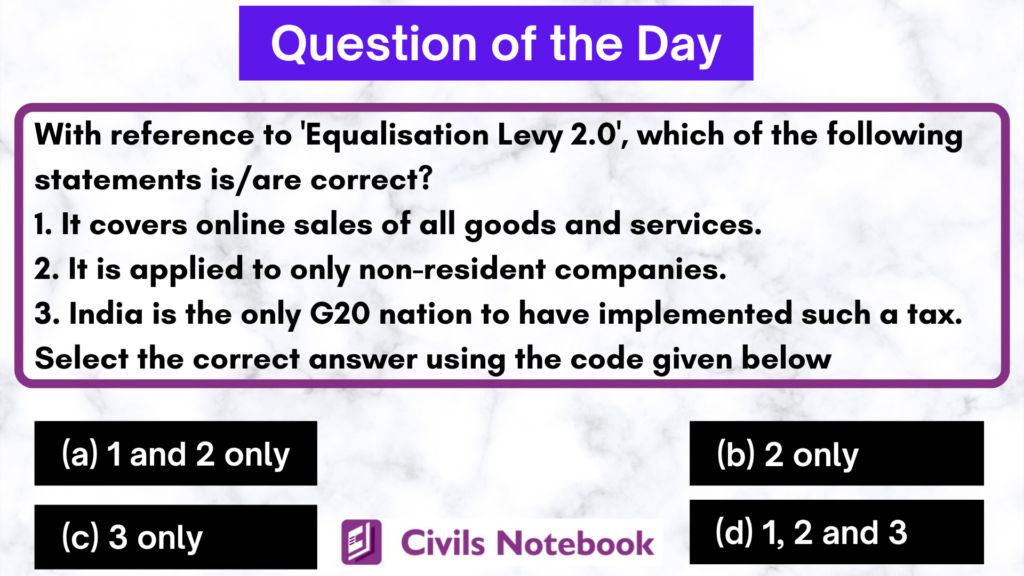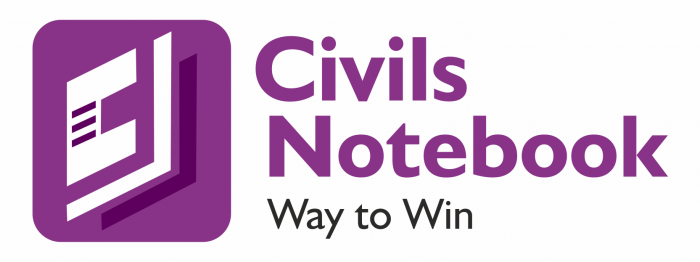
Explanation:
• Recently, several European nations like France and Italy have asked tech giants like Google, Apple, Facebook, and Amazon (GAFA) to pay Digital service tax.
• Digital service tax covers online sales of goods and services. It includes policies that specifically target businesses that provide products or services through digital means. Hence statement 1 is correct.
• India was the first country to introduce a digital tax called ‘Equalisation Levy’ in 2016 at the rate of 6%. EL 1.0 was payable by Indian residents on online advertisement services purchased from nonresident companies.
• From 1 April 2020, the scope of equalization levy has been expanded to include a 2% levy on all online sales of goods or services into India by non-resident e-commerce operators (‘EL 2.0’). Hence statement 2 is correct.
• Recognizing the need to reform international tax rules for taxing digital companies such that countries get their fair share of taxes, the OECD has been working on proposals for new rules but so far has not arrived at a consensus on the final scope and manner of taxation.
• Meanwhile, many countries such as France (3% levy), Italy, Turkey, Austria, UK, Malaysia, Spain etc. have either proposed or implemented a unilateral digital tax applicable to digital companies, called as the ‘Digital Services Tax’ (‘DST’). Hence statement 3 is not correct.
Hence Option A is the correct choice.
